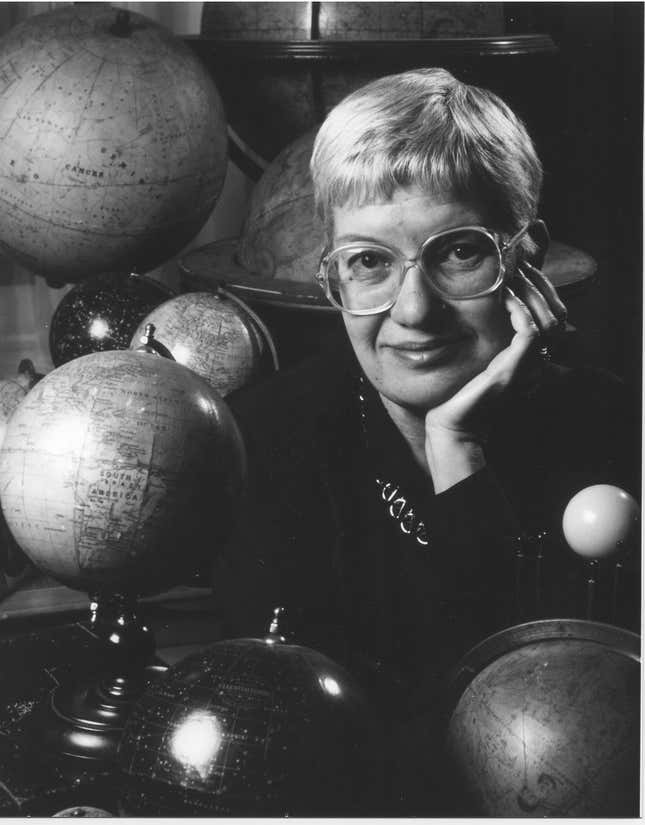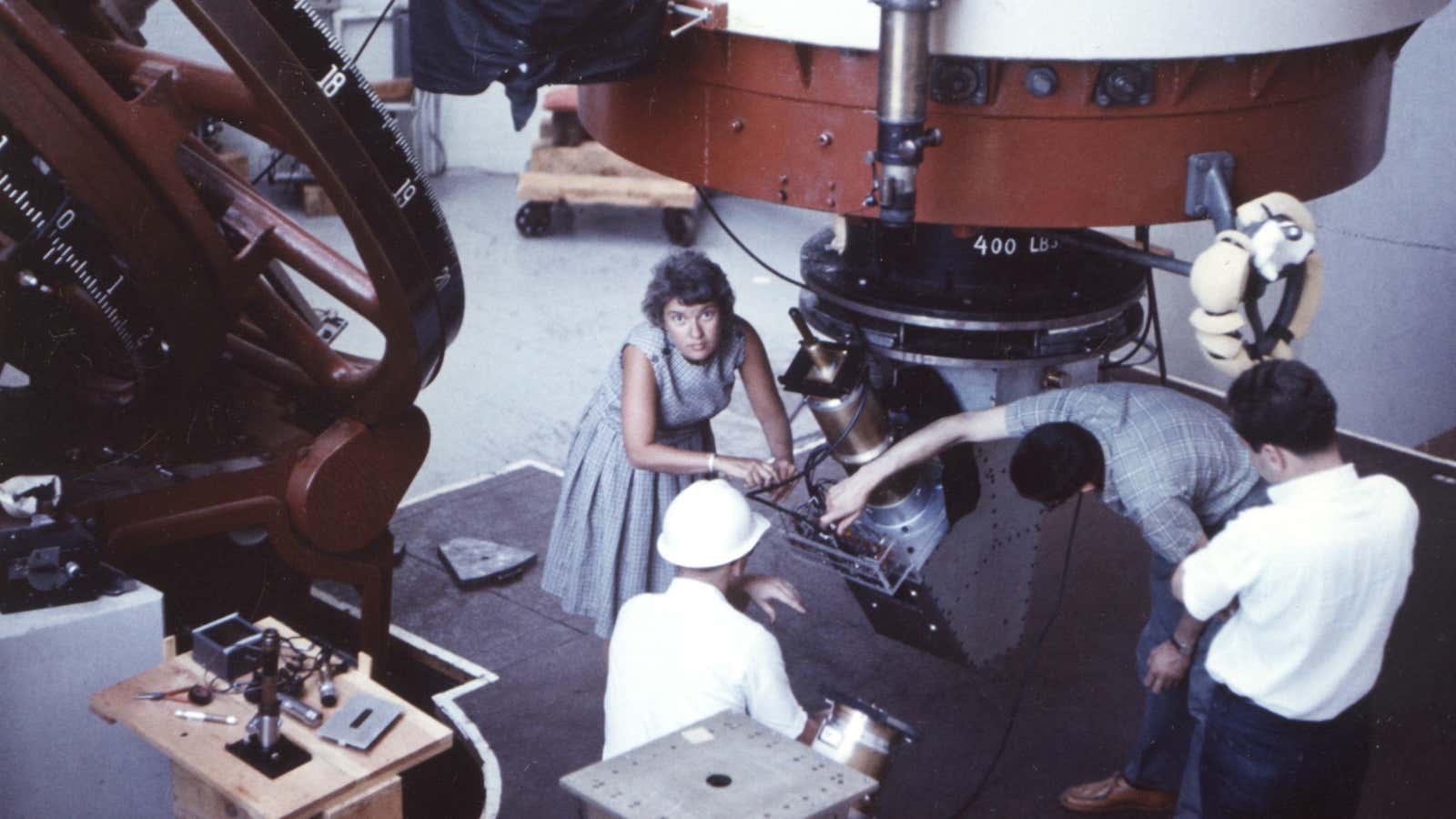On December 25, Vera Rubin, the astrophysicist who discovered evidence of dark matter in the universe, passed away at age 88.
As a female scientist, Rubin was a trailblazer. She was the only astronomy major in her 1948 graduating class at Vassar College, where she went after getting rejected from Princeton University’s astronomy program, which did not accept women until 1975. She went on to study at Cornell University, and began her PhD at Georgetown University at age 23—already a mother, with a second baby on the way.
According to the Los Angeles Times, when Rubin first observed the night sky in 1965 at San Diego’s Palomar Observatory—then a partnership with the Carnegie Institution—women were generally barred from such major telescopes. Fifty years later, Carnegie Institution president Matthew Scott called Rubin a “national treasure.” Indeed, Rubin’s contributions to the field of science can hardly be overstated. “Her work in astronomy ushered in a revolution in how we saw the Universe,” wrote Slate’s Phil Plait.

As a working mother of four children, a pioneer in her field, and a rigorous scientist unafraid of big questions, any of us could learn from Rubin’s poetic wisdom and deep perspective. “I succeeded in my two goals—to have a family and to be an astronomer,” she wrote in the preface to her 1997 book, Bright Galaxies, Dark Matters. Here she is, in her own words:
“Devise your own paths.”
From a commencement speech addressing the graduating class of University of California, Berkeley in 1996:
I insisted on working on problems outside the mainstream of astronomy so that I could work at my own pace and not be pressured by bandwagons. I do not offer this as an example for you, but only to show that there can be diverse approaches to science. There must be. I hope some of you will be able to devise your own paths through the complex sociology of science. Science is competitive, aggressive, demanding. It is also imaginative, inspiring, uplifting. You can do it, too.
“Look, now you have a ladies room.”
The men at The Palomar Observatory told Rubin she would run into a setback using the facilities, her associate, Neta Bahcall remembered.
They told her, ‘It’s a real problem because we don’t have a ladies room,’ so she went back to her room and took out a little piece of paper and cut it into a skirt and went to the bathroom door and stuck it on the men’s figure on the door. She said, ‘Look, now you have a ladies room.’
“Fight injustice and discrimination in all its guises… You do better.”
From the 1996 Berkeley address:
Disdain mediocrity and aim to excel in whatever you do. I hope you will love your work as I love doing astronomy. I hope that you will fight injustice and discrimination in all its guises. I hope you will value diversity among your friends, among your colleagues, and, unlike some of your regents, among the student body population. I hope that when you are in charge, you will do better than my generation has. In 1993, US universities awarded PhD degrees in physics and astronomy to a total of nine black Americans. You do better.
“There is no problem in science that can be solved by a man that cannot be solved by a woman.”
From Bright Galaxies, Dark Matters:
I live and work with three basic assumptions.
1) There is no problem in science that can be solved by a man that cannot be solved by a woman.
2) Worldwide, half of all brains are in women.
3) We all need permission to do science, but, for reasons that are deeply ingrained in history, this permission is more often given to men than to women.”
“Having a family and a career was very hard, but it’s do-able.”
From Bright Galaxies, Dark Matters:
Everybody had lots of space; that really helped. The kids had their rooms and I never cared what they looked like. We have lots of large tables. We have a very large table in the dining room, and another in the breakfast room. My husband used to always humorously say that there would always be a space on one of those tables where we could eat. Things were always spread out on those tables. I did a lot of my work at home. So having a family and a career was very hard, but it’s do-able.
